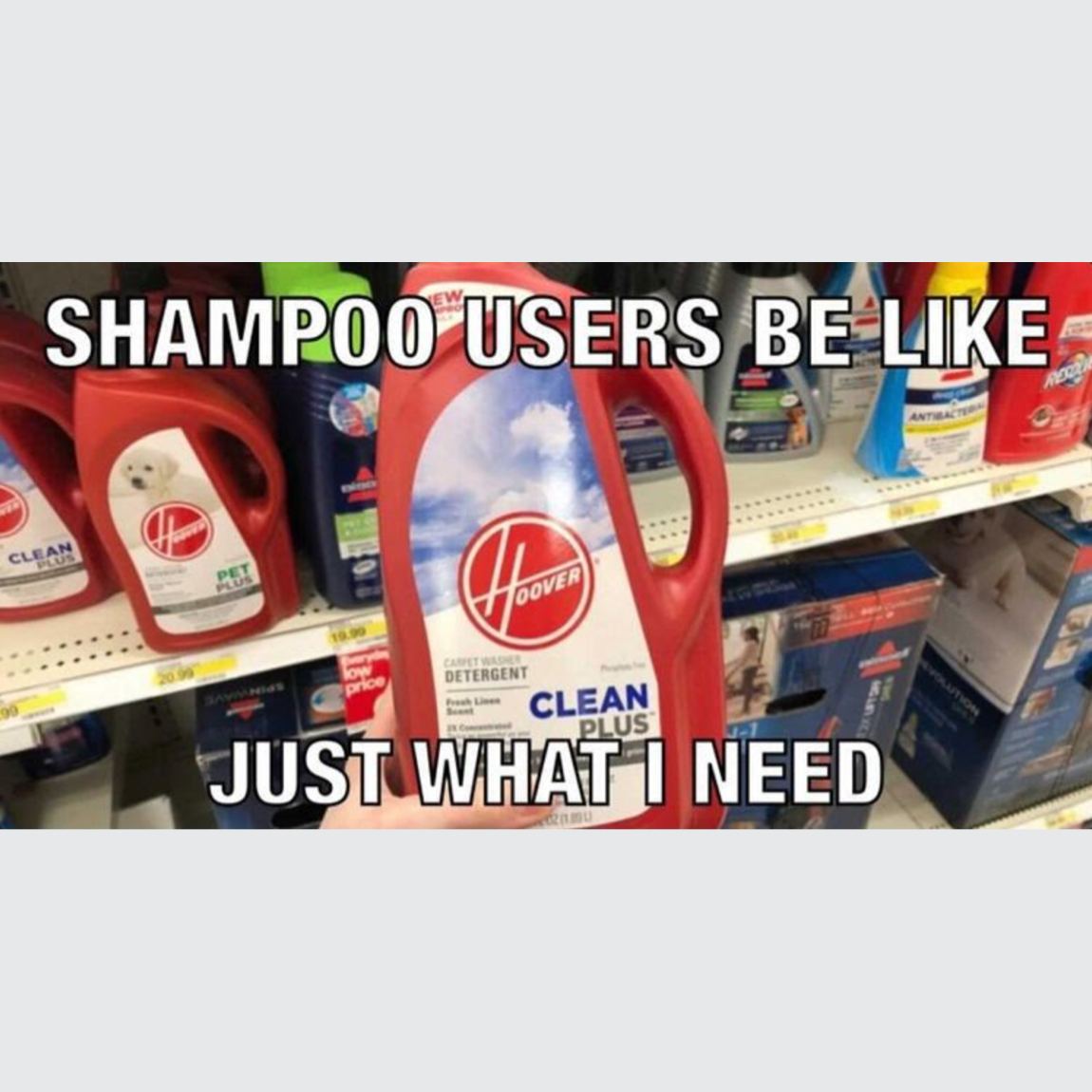

· By Customer Team
Shampoo Is a Total Scam (Science Says So)
Let’s do a quick experiment: Google “1960s mens hairstyles.” Now Google “1980s mens hairstyles.” Notice how guys in the 60s (and before) had lush, smooth, Don Draper-esque hair—but in the 80s it got poofy and frizzy.
It’s easy to blame bad taste for this decline in hair quality. But the problem wasn’t necessarily how guys were styling their hair, it was the stuff they put in their hair: shampoo.
Until around 1970, the idea of a guy shampooing his hair at home was a foreign concept. Then companies hired advertising agencies (the same agencies hired to peddle cigarettes) to tap into Americans’ hygiene obsession and convince people to wash their hair multiple times a week. Next thing you know, everyone had a bottle of shampoo in their shower.
This highly-calculated PR campaign generated serious cash for shampoo companies, but made our hair dry, brittle, and hard to manage. Before we go into the details of what shampoo does to your hair, we need to cover a quick biology lesson.
Why Is Shampoo Bad For Your Hair?
Hair, one of the defining characteristics of mammals, is made of amino acids and a tough protein called keratin which keeps your mane looking full and glossy (the way it’s supposed to look). Your hair stands up pretty well against natural elements, but certain chemicals can break down those proteins, making your hair frizzy and brittle.
Ironically, one of these chemicals is a primary ingredient in mass market shampoos: sodium lauryl sulfate (SLS). Developed in the 1930s, SLS is the first man-made detergent and was originally used in laundry detergent. Because it was cheap and easy to make, chemists started putting it in all sorts of products like floor cleaner, dish soap—and shampoo.
Your Hair On Shampoo
Without getting too science-y, sulfates are basically your hair’s archnemesis. They make shampoo lather up to give you that “squeaky clean” feeling. That’s not a good thing, though. While sulfates help shampoo get rid of dirt, they also strip away the natural oil (sebum) which protects your hair.
Ideally, your fingers should be able glide through your hair with little to no resistance. But if you notice friction between your hair and fingers after shampooing, it’s because you’ve eroded that natural barrier.
Sulfates also remove your hair’s protein (a big problem considering your hair is over 90% protein). According to a 2005 study, researchers found that treating hair with sulfates causes hair to lose seven times more protein than water. It’s even worse when you add hot water to the mix.
Let’s recap: the main ingredient in shampoo dissolves your hair’s natural barrier and destroys the proteins that give it structure. Of course, you won’t find that information in their commercials.
How Shampoo Companies Got Rich
Ok, so we established that shampoo is bad for your hair. But calling it a “scam” might seem dramatic. Let’s unpack their business model so you can decide for yourself.
When you zap the moisture off your head, your body senses dryness and sends scalp oil production into overdrive. Within a day or two, your scalp feels greasy so you shampoo it again…and again. We call this the “shampoo cycle.”

Before you know it, you’re out of shampoo so you buy another bottle. On top of that, they push you to buy conditioner to repair the damage. Bottom line: shampoo brands charge you money to damage your hair, then charge you again to "fix" it—not a shabby business model if you’re trying to make billions.
So what are you supposed to do if you want to clean your hair without nuking it?
Meet Modern Mammals: A Shampoo Alternative
As guys who were familiar and frustrated with the poof, frizz, and discomfort that shampoo causes, we took matters into our own hands (literally). The result was Modern Mammals: two shampoo alternatives that cleanse out grime without the harsh chemicals that damage your hair.
Unlike shampoo, our rinses are totally free of sulfates. Instead, they're packed with moisturizing vitamins and essential oils that soak into your hair and scalp, keeping your flow fresh and healthy after every wash.
Saying no shampoo used to be for hippies and that smelly kid who sat next to you in math class. Fortunately, the masses are waking up to the harsh truth about shampoo. It may have taken a few decades, but better late than never.
